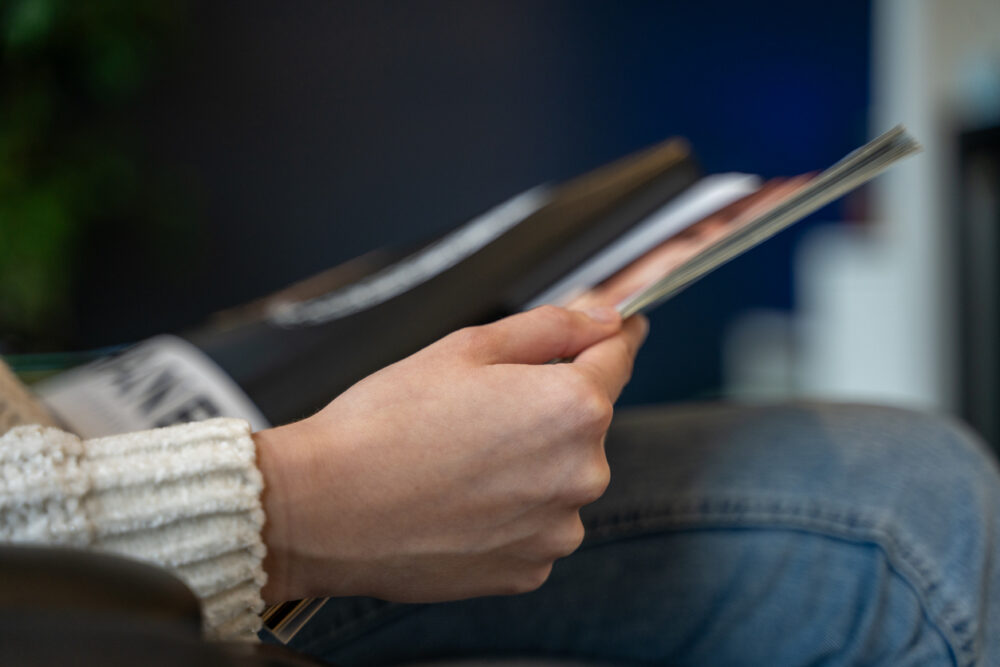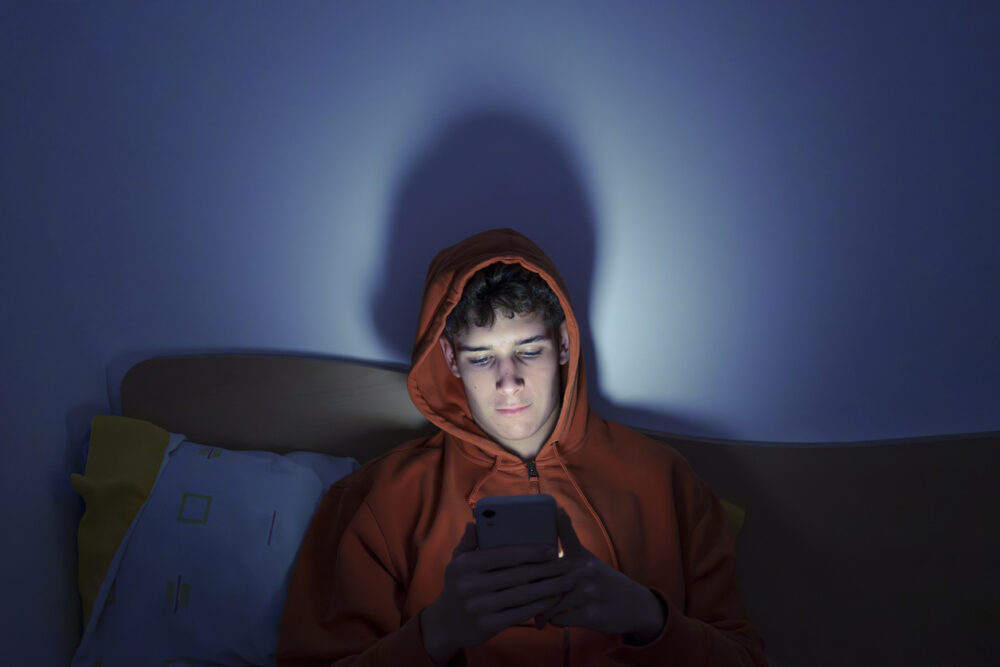Idle moments made space for wonder, but the scroll took those too.

There used to be entire pockets of the day when nothing happened—and they weren’t something to dread. They were where imagination lived. You stared out the car window and made up stories. You let your mind drift while waiting in line. You sat on the porch with no agenda, just air and time. But those little spaces got filled. Notifications, videos, endless feeds. The quiet gaps were replaced with noise, distraction, and algorithms that never sleep.
It wasn’t just boredom we lost—it was the gentle rhythm that came with it. The space to think a thought all the way through. The slow build of anticipation. The way rest used to feel like rest instead of guilt. Now, we reach for stimulation without even noticing. The phone’s already in our hand. The scroll starts before we realize we’re searching for something. These lost pleasures didn’t vanish all at once. They faded out quietly—one tap at a time.
1. Letting your mind wander used to feel like a superpower.

There was a time when staring into space wasn’t wasted time—it was where all your best ideas showed up. On long drives, during slow classes, lying in bed before sleep, your brain wandered freely without something shouting for its attention. You connected dots you didn’t know were there. You imagined entire futures, silly scenarios, new versions of yourself. Experts at Columbia University explain that mind-wandering plays a key role in memory consolidation and creative thinking, giving your brain a chance to make unexpected connections.
Now it’s nearly impossible to access. The moment you feel even a flicker of stillness, you grab your phone. Your brain gets flooded with everyone else’s thoughts before your own even form. That spontaneous creativity, the weird tangents, the unexpected memories—they all need room to rise. And that room keeps getting filled with noise. When your attention is always directed outward, your inner world starts to shrink. Wonder requires space. And these days, space is the rarest thing we have.
2. Waiting used to be part of the experience, not something to avoid.

Standing in line. Sitting at the doctor’s office. Waiting for a friend to show up. Those in-between moments weren’t always fun—but they shaped how you moved through the world. You had to sit with yourself. You noticed the people around you, overheard odd conversations, made up little backstories for strangers. Your surroundings were part of the day, not just something to escape. Ken Budd writes in AARP that instead of simply waiting, most people now automatically turn to their phones—trading presence for distraction. And that means we miss what’s actually happening.
The tension before something begins, the awkwardness that sparks thought, even the simple act of being still in public—all of it has been flattened by a screen. When you erase the discomfort of waiting, you erase the richness of experiencing time. Not every second needs to be filled. Some of the best thoughts happen when you let time stretch out a little.
3. Staring at the ceiling was once a daily ritual.

Not checking your phone first thing in the morning? That used to be the norm. You’d lie in bed and look at the ceiling, blinking into the light, easing into the day. Maybe you thought about a dream you just had, or worried about something dumb you said yesterday. Maybe you just stared—blank and still—for a while. That ritual wasn’t glamorous, but it gave your brain a gentle runway.
In an article for Forbes, Jay Rai describes how diving into notifications immediately can jolt your system with stress and distraction, cutting off any chance for a quiet, grounded start. You don’t get to meet your own mind at the start of the day. You meet everyone else’s. And something about that feels stolen. Like the soft space between sleep and reality is now occupied by a thousand voices that aren’t yours.
4. Silence used to be part of being around other people.

Being with someone didn’t always mean talking or sharing content. You could sit next to a friend, both of you doing nothing, and feel completely connected. Road trips with long quiet stretches. Afternoons reading in the same room. Walks where no one spoke unless they wanted to.
Those moments built something too—comfort, intimacy, ease. You didn’t need constant entertainment to feel close. Now it feels like silence has to be filled. We play music, put on a podcast, send a meme instead of just… sitting there. And sometimes that’s great, but sometimes it steals the magic.
The calm you once shared now feels awkward unless it’s busy. But real connection doesn’t need a soundtrack. There’s something powerful in knowing someone well enough to be quiet with them. That kind of silence is rare now—and that makes it even more sacred.
5. Getting lost in thought while walking was a whole vibe.

Walking used to be an escape in the best way. You stepped outside with no plan, no playlist, and just let your feet and thoughts wander. You noticed the weird cracks in the sidewalk, the color of a stranger’s coat, the sound of your own breathing. You had time to spiral or dream or rehearse conversations you’d never have. The rhythm of walking gave your brain permission to roam.
Now most walks come with earbuds, directions, or content playing in the background. You’re half outside, half somewhere else. It’s not that music or podcasts are bad—but when every walk is a multitasking event, you lose something subtle. The connection between your body and your brain gets diluted. You stop noticing your own thoughts because someone else’s are louder. And suddenly, walking becomes another thing you rush through instead of something that returns you to yourself.
6. Flipping through nothing in particular was its own kind of joy.

Magazines in waiting rooms. Shelves of random books at a relative’s house. Junk mail catalogs you never asked for. Flipping through things without purpose used to be a quiet thrill. You’d stumble on an image or sentence that sparked something.
You weren’t hunting for content—you were just exploring. That slow, purposeless browsing didn’t demand anything of you. It just passed the time in the softest way. Now, scrolling has replaced flipping—but the feeling is totally different. The scroll never ends. It’s designed to hook you, trap you, keep you engaged until you forget what you were even looking for. Exploration becomes consumption. Curiosity gets replaced by addiction. That simple joy of stumbling on something unexpected, then putting it down and walking away, is harder to find when every digital corner is built to pull you in deeper.
7. Looking out the window used to be its own form of entertainment.

Windows weren’t just for light—they were a portal. You’d watch rain roll down the glass, cars blur past, leaves tumble in the wind. It wasn’t thrilling, but it was grounding. Staring out the window let your brain rest without shutting off. It gave you something quiet to witness, something to reflect your own stillness back at you. It didn’t need to be productive. It just was.
Now, when’s the last time you looked out the window without your phone in hand? That instinct to watch the world has been replaced by an instinct to check out. Why gaze at a rainy sidewalk when you can stream a perfectly curated life instead? But the view outside is real. It shifts. It breathes. It reminds you where you are and that you’re alive. And no feed—no matter how pretty—can do that in the same way.
8. Daydreaming at school or work wasn’t a failure—it was freedom.

Back in the day, zoning out in class or during a long meeting wasn’t ideal, but it was human. Your mind would drift to something better—summer break, a secret crush, a fantasy life far from that desk. It was a mental survival skill. You weren’t avoiding responsibility; you were just giving your brain a break from the grind.
Now, there’s no room for that kind of drift. The second your attention flickers, your phone offers a full-blown escape. And that kind of instant distraction doesn’t lead to imagination—it just leads to consumption. Daydreaming used to come from within. It was raw, weird, and deeply personal. Replacing that with external noise flattens your inner world. You lose the ability to create stories in your own head because you’re too busy scrolling through someone else’s.
9. Listening to your own thoughts used to be part of everyday life.

There was a time when it was just you and your brain—no music, no background noise, no constant commentary. You’d be in the shower, brushing your teeth, folding laundry, and your thoughts would just… wander. You’d reflect, spiral, plan, remember. It was messy but honest. You got to know yourself in those moments.
Now, silence feels uncomfortable. So we fill it. Always something playing, something flashing, something talking. And that’s not always bad—but it means we rarely hear what’s going on inside. When your inner voice gets drowned out by TikToks, playlists, and breaking news, it’s harder to notice what you’re feeling or needing. Listening to your thoughts might not be fun every time—but it’s part of knowing who you are. And without that? You become a stranger to yourself in your own head.
10. Talking to strangers used to happen without a second thought.

You’d strike up a conversation in line. Comment on someone’s shirt at the bus stop. Make eye contact and say hello while passing on the sidewalk. These weren’t life-changing interactions, but they built something: a sense of community, a feeling of presence, a connection to the world around you. People were part of your environment—not background noise to scroll past. Now, earbuds go in and heads go down. The moment between you and someone else is often filled with a screen instead of a smile.
It’s not about being anti-tech—it’s about how much we’ve lost the art of low-stakes human connection. Talking to a stranger doesn’t mean you want to be best friends. It just reminds you that you’re not alone. And in a world that feels more isolating every day, those tiny moments of humanity might matter more than we realize.
11. Finishing the day without stimulation used to be normal, not rare.

Evenings once had a gentle slope. You’d turn the TV off, brush your teeth, and lie in bed with your own thoughts. Maybe you read a few pages of a book or just lay there until sleep came. There was no dopamine hit waiting under your pillow. The day had a natural end, and your brain slowly powered down with it.
Now, the scroll extends the day indefinitely. One more reel, one more text, one more article. Sleep isn’t a ritual anymore—it’s an interruption. And your nervous system never really gets the memo that it’s time to rest. What used to be a quiet fade-out has become a jarring cut to black. And that loss of wind-down time doesn’t just mess with sleep—it chips away at your peace. Without true stillness, even rest becomes another thing you have to fight for.